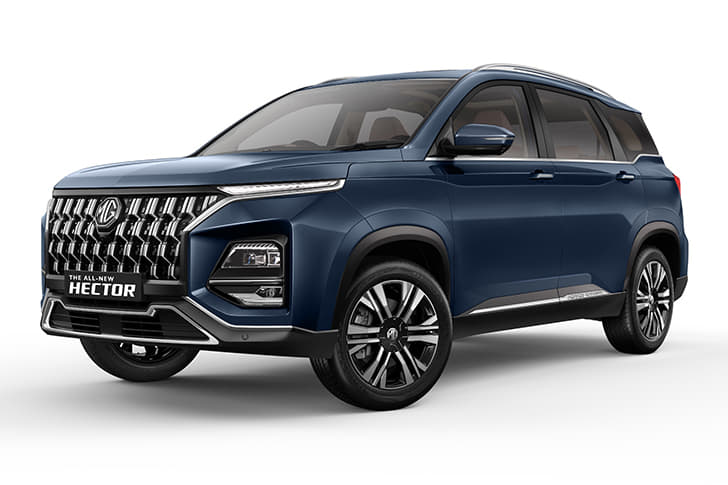The Dacia Spring EV was awarded a one star rating in the latest round of Euro NCAP crash tests. The electric city car was part of a number of models to be tested by the agency which also included the Zoe EV from Dacia's parent company Renault which received a zero star rating.
The Spring EV, Europe's cheapest full-sized electric car, was awarded a one-star verdict on the basis that "its performance in crash tests is downright problematic". The electric city car is closely related to the Chinese-market Renault City K-ZE EV and combustion-engined Renault Kwid – which landed a one-star Global NCAP safety rating in 2016.
- Electric hatchback scores 49 percent for adult occupant protection
- Euro NCAP highlights lack of active safety tech
- Renault sibling, the Zoe EV, is third ever zero star car
Euro NCAP said testing highlighted "a high risk of life-threatening injuries for driver chest and rear passenger head in frontal crash tests and marginal chest protection in side impact.”
Dacia Spring EV: the rating explained
Despite being fitted with the head-protecting airbag from the Zoe, the Spring achieved only a 49 percent score for adult occupant protection, while a risk to rear-seat passengers resulted in a 56 percent child occupant rating.
The Spring offered poor protection to the driver's chest and pelvis in the front mobile deformable barrier impact test and poor head protection to rear occupants during the full width barrier test. Far side impact test also showed poor protection to the occupants, while rear occupant whiplash neck protection was rated poor in case of a rear impact.
For child occupants, Euro NCAP recorded marginal neck protection to the 10-year-old dummy and marginal head protection to the six-year-old dummy in the event of a frontal offset impact. The car also lost points for not having the ISOFIX anchorages clearly marked. The Spring was also missing "key active safety systems".
“This is anything but a safe family car, despite being marketed as a good option for families," said Matthew Avery, Euro NCAP board member on the performance. “Dacia argues that drivers don’t need collision-avoidance technology. We would argue that’s not right, because nobody wants to have a crash; nobody wants to feel what it’s like to be smacked in the face by an airbag, really. So active safety is just as important as passive safety.”
He suggested that the Spring’s shortcomings in the active safety segment (that includes the lack of advanced driver aids) isn't necessarily compensated for by a strong active safety performance. It has “very poor active and passive safety,” he said.
Commenting on the Spring’s one-star rating, Dacia said, “[The] Spring is a safe new A-segment car. It is homologated, complies with European safety regulations and goes even beyond." Automatic emergency braking and fireman access are not mandatory in European regulations, Dacia noted.
The manufacturer added, “[The] Spring proposes a full list of safety features providing better protection than most of the cars on the roads of Europe today (including those of upper segments). However, the contradiction remains between the light weight/small size of the car (which makes them more efficient and more accessible) and the resistance in terms of crash; especially with Euro NCAP protocols getting more and more stringent every two years, in particular for small city cars.”
Renault Zoe: third-ever vehicle to get zero-star Euro NCAP
The Renault Zoe, one of Europe's most popular electric cars, was given a zero-star safety rating, becoming just the third car in Euro NCAP's history to record a zero-star rating.
The Zoe previously held a five-star Euro NCAP rating, but was entered into the tests following a substantial facelift last year, which not just ushered in a bigger battery and extra power, but also – the safety organisation notes – a new seat-mounted side airbag that protects just the occupant's thorax, rather than the head and thorax as it did previously.
This change represents "a degradation in occupant protection", according to Euro NCAP, which reported that in the side-pole-impact test, the "driver's head directly impacted the intruding pole and head injury values indicated poor protection of this part of the body."
The supermini's performance in the frontal offset crash test was also "poor", with Euro NCAP citing weak protection for the driver's chest area and the necks of children in the back seats specifically.
The Zoe is also said to lack active safety technology "commonly fitted as standard", such as lane-departure warning and standard-fit automatic emergency braking (AEB). Therefore, it achieved a rating of just 14 percent in the Safety Assist category, around 61 percent lower than the 2021 average.
Overall, the Zoe achieved a 43 percent adult occupant safety rating (the lowest for 11 years), a 52 percent child occupant rating and a 41 percent rating in the Vulnerable Road Users category.
Avery, told our sister publication Autocar UK, “Every few years, Euro NCAP raises the bar by introducing new tests which either exploit new technologies or lift the hurdle to make manufacturers do better. If everyone is five-star, we need to lift the barrier."
As a result of these alterations, he explained, “When we first tested the Zoe, it did reasonably well and had all the elements you needed back then to get a reasonable score. But if you've still got the same design 10 years later, you aren't going to score as well.”


































